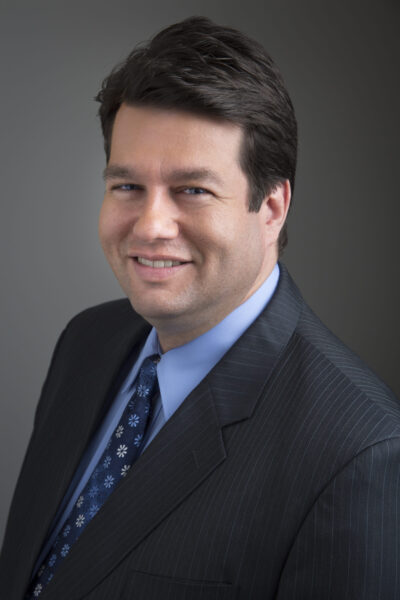New ACLU Report Shines Light on Shadowy EdTech Surveillance Industry and the Dangerous Consequences of Surveillance in Schools
ACLU Urges Schools to Protect Students and Promote Better Student Surveillance Technology Decision-Making
WASHINGTON — A new report released by the American Civil Liberties Union, dives into the booming multi-billion-dollar education technology (EdTech) surveillance industry and the harmful impacts these invasive, and largely ineffective, products have on students. The report looks at the deceptive marketing claims made by popular EdTech surveillance companies and breaks down how they use educators’ fears and unsubstantiated efficacy claims to falsely convince schools that their products are needed to keep students safe.
The report, titled “Digital Dystopia: The Danger in Buying What the EdTech Surveillance Industry is Selling,” details how EdTech products harm K-12 students, rather than keep them safe. Students who are members of the LGBTQ community, students of color, students with disabilities, low-income students, and students who are undocumented or have undocumented family members are especially vulnerable to the many harmful consequences of surveillance in schools, the report explains.
“The EdTech surveillance industry has massive marketing reach and power. Unchecked, these companies have created massive demand for their products based on unsubstantiated claims that surveillance deters harmful conduct and keeps students safe,” said Chad Marlow, ACLU senior policy counsel and principal author of the report. “But we know from the findings in this report that EdTech surveillance companies are using fear-based tactics to sell surveillance products that not only fail to keep our kids safe but actually increase discrimination, invade students’ privacy, and erode trust between students and educators.”
While buying these EdTech surveillance products may make school districts feel safer, the reality is they do not keep students safe. The report draws from both qualitative and quantitative methods, including reviews of existing research and scholarship, an investigation of EdTech industry products and practices, an audit of school shooting incidents to examine the efficacy of safety measures, original research through student focus groups, and a national YouGov survey commissioned by the ACLU of 502 students, aged 14-18.
Nearly all students who participated in our focus groups indicated school surveillance negatively impacted their interactions with school staff, communications with friends, activity online and on social media, what groups or clubs they consider joining, and how they feel at school broadly.
Students also expressed concerns that surveillance technology products pose serious data privacy and security concerns, with 26 percent of the students polled reporting concerns about what their school and any EdTech surveillance companies they contract with would do with the surveillance data they collect. One participant in the focus groups stated “...we treat kids like monsters and like criminals, then ... it’s kinda like a self-fulfilling prophecy.”
Other key findings include:
- False marketing from EdTech companies leads to a misuse of school resources:
- In 2021, K-12 schools and colleges in the United States spent an estimated $3.1 billion on security products and services (up from $2.7 billion in 2017).
- The EdTech surveillance industy’s efficacy claims are based almost entirely on opinion-based evaluations and unsubstantiated, unverifiable statements and figures. The lack of independent, unbiased evaluations establishing that products work is striking given the size of the industry.
- Claims made by EdTech companies about the efficacy of their products, specifically that they “prevented” school shootings and deaths by suicide, were unfounded, impossible to verify due to a current lack of research, and/or flew in the face of the few independent studies showing surveillance doesn’t reduce incidents of violence in schools.
- School surveillance increases risk of discrimination against students:
- Students are aware of the potential risks involved with school surveillance tools, with almost 1 in 5 (18 percent) students ages 14-18 in the ACLU’s national survey expressing concern that school surveillance could be used against immigrant students specifically.
- Approximately 1 in 5 students reported concerns that surveillance technology could be used to identify students seeking reproductive health care, including abortion (21 percent) and seeking gender affirming care (18 percent).
- School surveillance doesn’t make students safer:
- In a nationally representative sample of 850 school districts conducted by University of Louisville researchers in 2021, there was no evidence of a difference in outcomes related to school crime between schools with security cameras and schools without.
- An audit of K-12 school mass shootings over the past two decades found that surveillance cameras were present in 8 of the 10 deadliest schools that experienced these shootings, yet did not prevent those incidents.
- A U.S. Secret Service investigation found that social media monitoring had little role in thwarting planned school shootings
- School surveillance causes students undo stress and anxiety:
- Almost all (87 percent) of students ages 14-18 claimed that their school used surveillance technology to monitor their behaviors,with 24 percent concerned with how school surveillance limits the resources they feel they can access online, and 17 percent had concerns about school surveillance limiting what they say online.
- A quarter of students reported concerns about how surveillance could be used to discipline them or their friends (27 percent) and how it could be shared with law enforcement (22 percent).
Through public education, robust, informed local decision-making processes, and state-level laws, this report gives school leaders the tools they need to fight back against those seeking to make their fortunes selling abusive student surveillance technologies. The report also lays out clear recommendations for evaluating the alleged benefits and certain harms of using surveillance technologies in schools.
On October 4th at 3 p.m. ET, Chad Marlow will join a panel at the annual EdTech Week conference in New York City to discuss this report and the broad civil liberties implications of surveillance tech in schools. Read more about the conference here.
Read the full report here.


